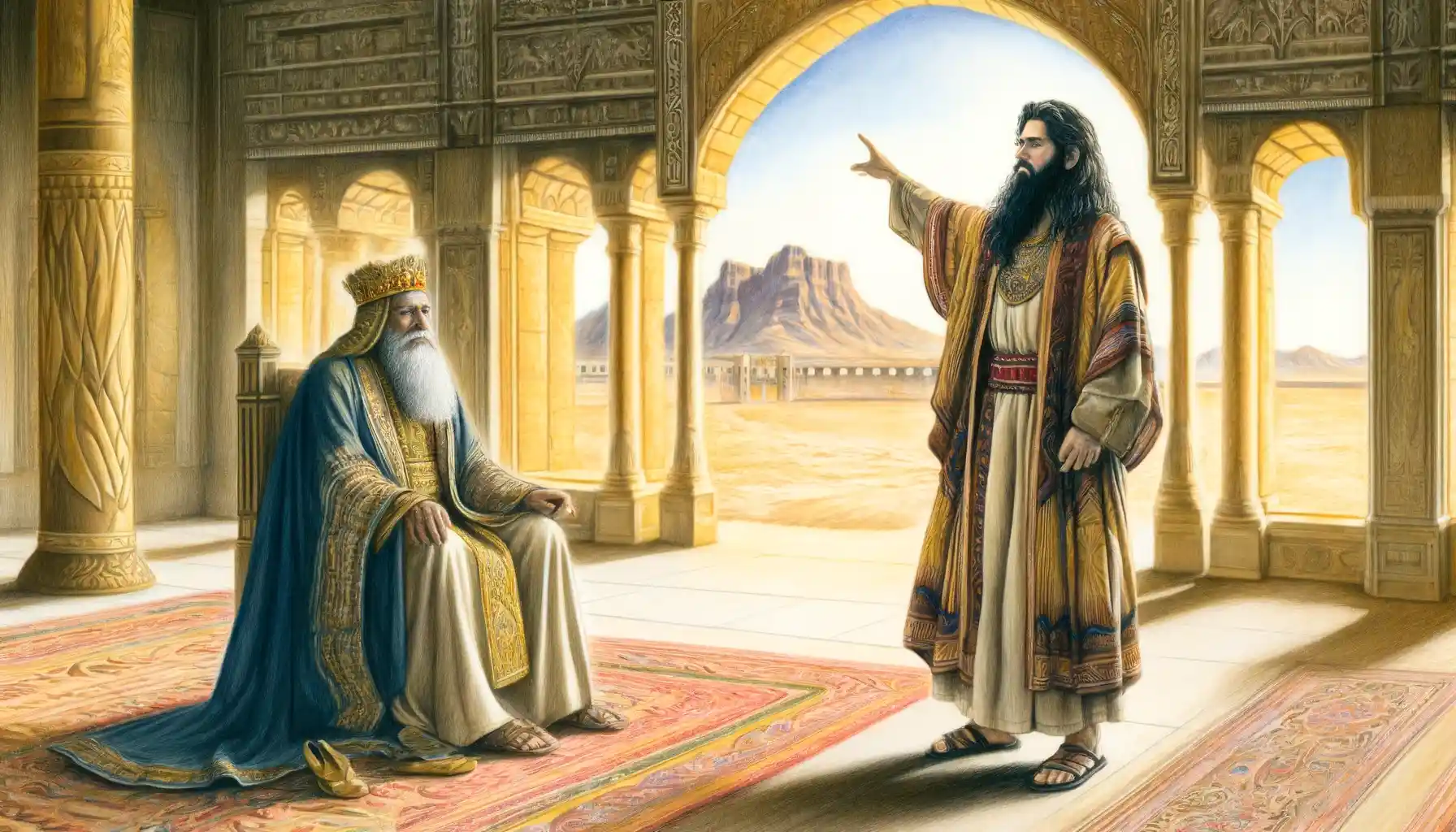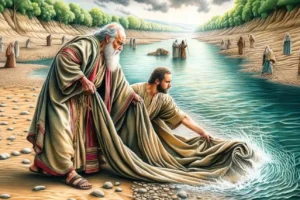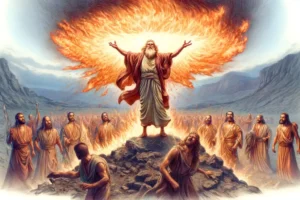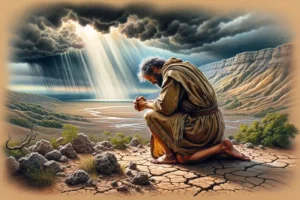
Announcement of a Drought by Elijah
Here are some quick facts about Elijah’s announcement of a drought:
- Biblical Reference: The event is recorded in 1 Kings 17:1.
- Context: Elijah announces the drought during the reign of King Ahab, a time marked by widespread idolatry encouraged by Ahab’s wife, Queen Jezebel.
- Divine Judgment: The drought is declared as a punishment from God, reflecting divine displeasure with Israel’s apostasy and worship of Baal.
- Duration: The drought lasts for three years, leading to severe famine and hardship throughout the kingdom of Israel.
- Prophetic Authority: Elijah’s proclamation showcases his role and authority as a prophet, speaking directly God’s judgments to the ruling king.
- Purpose: The drought serves to challenge the power of Baal, a Canaanite god associated with rain and fertility, thereby setting the stage for the later confrontation on Mount Carmel.
The announcement of a drought by the prophet Elijah, as recorded in 1 Kings 17:1, is a significant event both in terms of its immediate impact and its broader theological implications. This event not only underscores Elijah’s prophetic authority but also sets the stage for his ongoing confrontations with the idolatrous practices endorsed by King Ahab and Queen Jezebel.
Contextual Background
King Ahab’s reign in Israel was marked by a significant turn towards Baal worship, primarily influenced by his Phoenician wife, Jezebel. Baal, a storm god, was worshipped as a provider of rain and fertility, critical for the agricultural society of ancient Israel. Elijah’s proclamation of a drought directly challenges Baal’s purported domain, making a bold statement against the efficacy of Baal worship.
Analysis of the Drought Announcement
- Prophetic Declaration: Elijah’s introduction in the biblical narrative is abrupt and authoritative, underscoring his role as a direct messenger of God. He confronts King Ahab with a declaration that there would be neither dew nor rain except by his word. This assertion not only announces the drought but also implicitly claims that it is Yahweh, not Baal, who controls the weather and, by extension, fertility and life in Israel.
- Divine Judgment: The drought is a form of divine retribution for Israel’s apostasy. By turning to Baal, Israel had broken the covenant established at Sinai, where Yahweh had expressly commanded against the worship of other gods. The drought serves as both a punishment and a call to repentance.
- Symbolic Confrontation: Theologically, the drought symbolizes a direct challenge to Baal’s power. In a region where water is scarce and precious, the control over rain means dominion over life and death. Elijah’s ability, through God, to stop the rain would have been seen as a powerful debunking of Baal’s supposed abilities.
Implications and Consequences
- Socioeconomic Impact: The three-year drought had devastating effects on the economy and the livelihoods of the people, exacerbating the struggle between the worship of Yahweh and Baal. This hardship likely intensified the spiritual and political conflicts of the time.
- Elijah’s Journey and Ministry: The drought propels Elijah into a nomadic existence, moving from brooks where he is fed by ravens to foreign lands where he performs miracles, such as the multiplication of oil and meal for the widow of Zarephath. Each of these episodes not only provides sustenance but also reinforces the supremacy of Yahweh through miraculous means in foreign territories, further discrediting Baal.
- Culmination at Mount Carmel: The drought sets the scene for one of the most dramatic confrontations in the Bible—Elijah’s contest with the prophets of Baal on Mount Carmel. The eventual downpour of rain following Elijah’s prayer not only ends the physical drought but also serves as a divine endorsement of Elijah’s prophetic office and a stark reminder of Yahweh’s sovereignty.
In summary, the announcement of the drought is not merely an isolated event but a pivotal moment that catalyzes the subsequent narrative of conflict, miracle, and the display of divine power. It highlights the themes of covenant fidelity, divine judgment, and the ongoing struggle between monotheism and idolatry in the biblical text.
Leave A Reply
You must be logged in to post a comment.




1 Comment